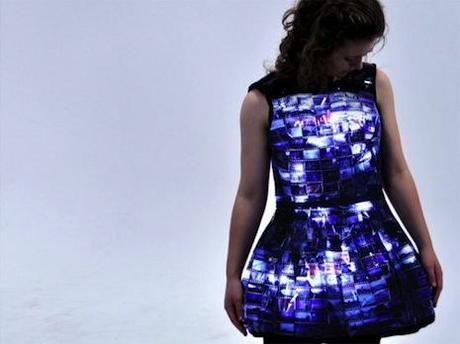
The wearable computing revolution has begun. According to Juniper Research, wearable computing is predicted to become a $1.5 billion business by 2014. As computer chips get smaller and more powerful, the future for wearables is only going to continue to grow. MIT Media Lab describes wearables as machines that are “worn, much as eyeglasses or clothing are worn, and interact with the user based on the context of the situation.” The key difference with wearables is that they are forcing computers to learn to work with us, rather than us having to learn to work with computers. Design will also play a critical role, since wearables not only need to serve a valued function, they also have to be comfortable, sleek, and allow room for a wearer’s self-expression.
Wearables that are currently on the market, like Jawbone’s UP, Fitbit, and the Nike+ FuelBand, help us improve our lifestyles by logging sleep, mood, eating, and walking activities. If UP feels like you’ve been too lazy, it even vibrates to nudge you into getting active. Computers are starting to look after us, turning into the Mary Poppins we never had. However, the potential for these devices is even larger, as they will eventually be able to help with more complex things like managing diseases, driving vehicles, and improving the quality of our interactions with people. Imagine something like Google’s Project Glass noticing that you haven’t gotten enough fresh air today, and suggesting a walk in the park. Or having something like MindMeld remind you that you should congratulate your friend for just having a baby, right before she comes up to talk to you. Or having insulin injected into a diabetic person right when their body needs it. This kind of seamless connectivity will help us maintain both our social bonds and our bodies, which is quite revolutionary indeed.
Computers are not only going to help us live our lives better, they are also going to literally become a part of us. Yves Behar, chief creative officer at Jawbone, states that the goal of wearable design will be to “humanize the computing experience.” But what do you think the repercussions will be? Could we actually lose some of our “humanness” by physically wearing our technology? Personal computers are about to get a whole lot more personal and we want to hear what you think about this new (wearable) revolution!
